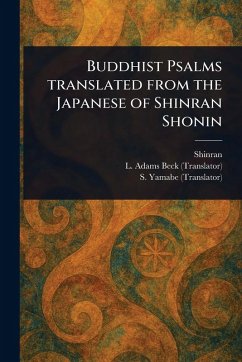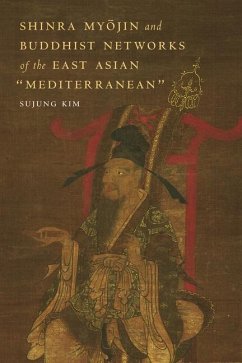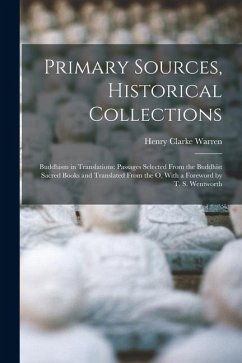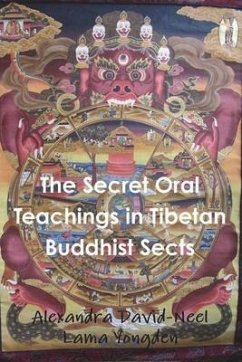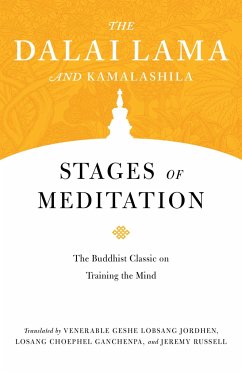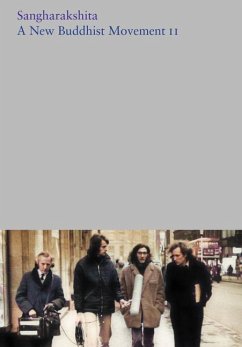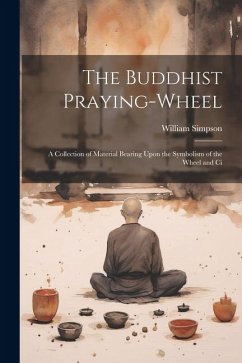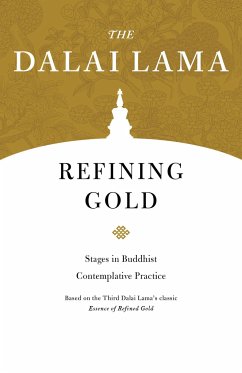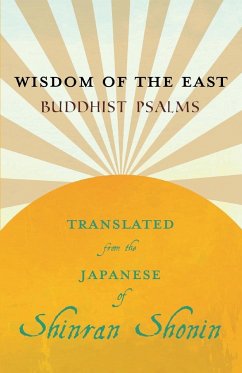
Wisdom of the East - Buddhist Psalms - Translated from the Japanese of Shinran Shonin
Versandkostenfrei!
Versandfertig in über 4 Wochen
19,99 €
inkl. MwSt.

PAYBACK Punkte
10 °P sammeln!
"Wisdom of the East" contains an English translation of the Jodo-Wasan, three volumes of Japanese verses originally written by Shinran Shonin (1173 - 1263). The verses are called J¿do Wasan, Koso Wasan, and Shozomatsu Wasan, all of which constitute a celebration of the essence of J¿do Shinsh¿ (also known as 'Shin Buddhism' or 'Pure Land Buddhism'). Contents include: "Lauding the Infinite One", "Of Paradise", "Concerning the Great Sutra", "Concerning the Lesser Sutra", "Of the Many Sutras Concerning the Infinite One", "Concerning the Welfare of the Present World", "Of Thanksgiving for Nagarj...
"Wisdom of the East" contains an English translation of the Jodo-Wasan, three volumes of Japanese verses originally written by Shinran Shonin (1173 - 1263). The verses are called J¿do Wasan, Koso Wasan, and Shozomatsu Wasan, all of which constitute a celebration of the essence of J¿do Shinsh¿ (also known as 'Shin Buddhism' or 'Pure Land Buddhism'). Contents include: "Lauding the Infinite One", "Of Paradise", "Concerning the Great Sutra", "Concerning the Lesser Sutra", "Of the Many Sutras Concerning the Infinite One", "Concerning the Welfare of the Present World", "Of Thanksgiving for Nagarjuna, the Great Teacher of India", "Wherein with Lamentation I Make my Confession", etc. Many vintage books such as this are increasingly scarce and expensive. It is with this in mind that we are republishing this volume now in an affordable, modern, high-quality edition complete with the original text and artwork.



